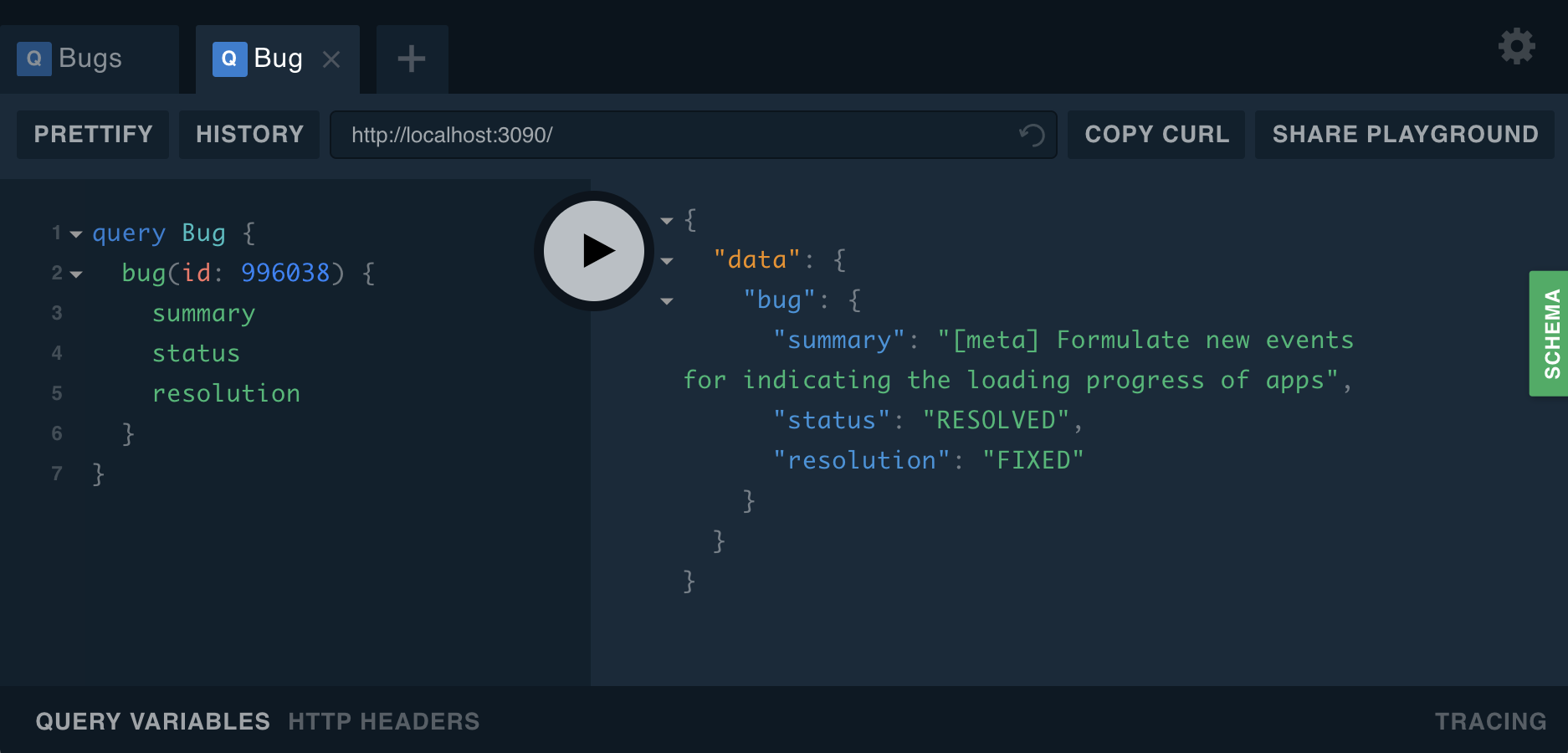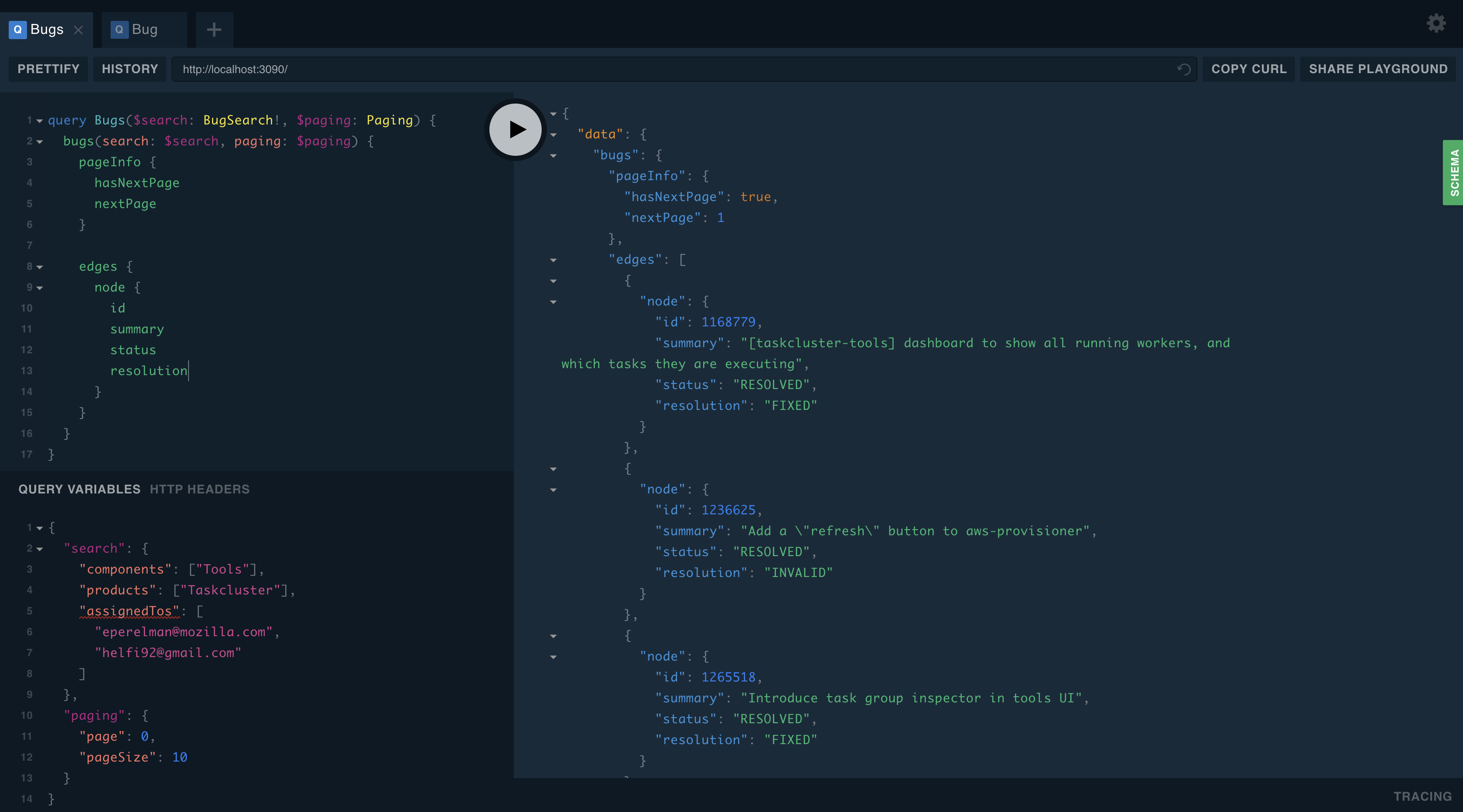An intermediary gateway between a GraphQL client and the Bugzilla REST API.
Currently only supports public query operations, not mutation or subscription.
By default this gateway relies on the PORT and BUGZILLA_ENDPOINT. If not set, these
values default to 3090 and https://bugzilla.mozilla.org/rest/bug respectively.
Additionally, BUGZILLA_API_KEY may be set to prevent the API from being rate-limited.
To override these values, either set them on the command line or
place a .env file in the root of this repo with the following environment variables
inside of it, using your overrides instead of these defaults:
PORT=3090
BUGZILLA_ENDPOINT="https://bugzilla.mozilla.org/rest/bug"
BUGZILLA_API_KEY=<your_bugzilla_api_key>To start the service up locally, first install dependencies using yarn.
Use the command yarn start to start the
service, which launches on the PORT environment variable.
You should see the following message in the console, for example, using port 3090 by default:
Bugzilla GraphQL gateway running on port 3090.
Open the interactive GraphQL Playground, schema explorer and docs in your browser at:
http://localhost:3090Query a bug by ID, 996038. Access the bug's summary, status, and resolution:
query Bug {
bug(id: 996038) {
summary
status
resolution
}
}Query all bugs in the Taskcluster product, in the Tools component, with the
assignee of [email protected] or [email protected], specified by query variables.
Access each of matched bugs' ID, summary, status, and resolution. Also limit pages to 10 bugs each,
and get paging information back from the query.
query Bugs($search: BugSearch!, $paging: Paging) {
bugs(search: $search, paging: $paging) {
pageInfo {
hasNextPage
nextPage
}
edges {
node {
id
summary
status
resolution
}
}
}
}Variables:
{
"search": {
"components": ["Tools"],
"products": ["Taskcluster"],
"assignedTos": [
"[email protected]",
"[email protected]"
]
},
"paging": {
"page": 0,
"pageSize": 10
}
}You can enable tracing and caching to the Apollo Engine service by setting the
APOLLO_ENGINE_KEY environment variable.

